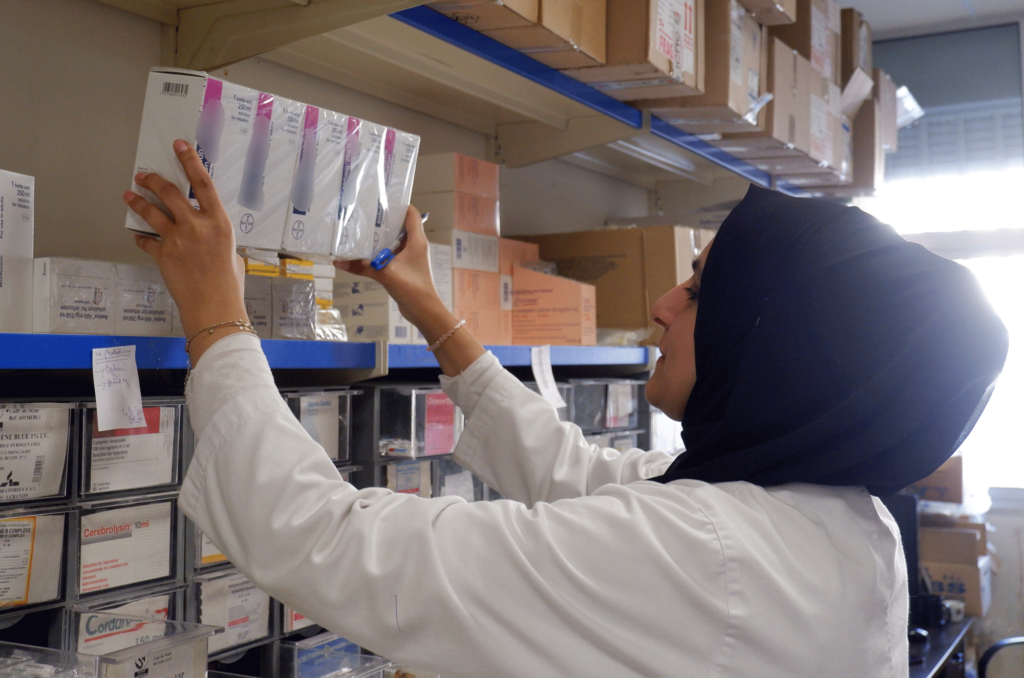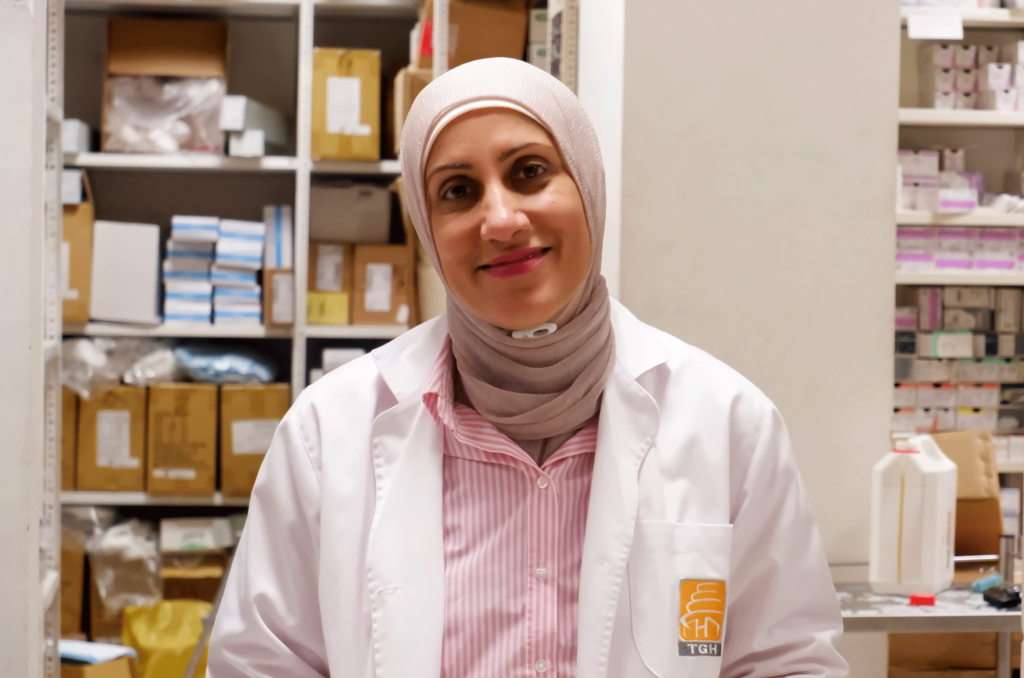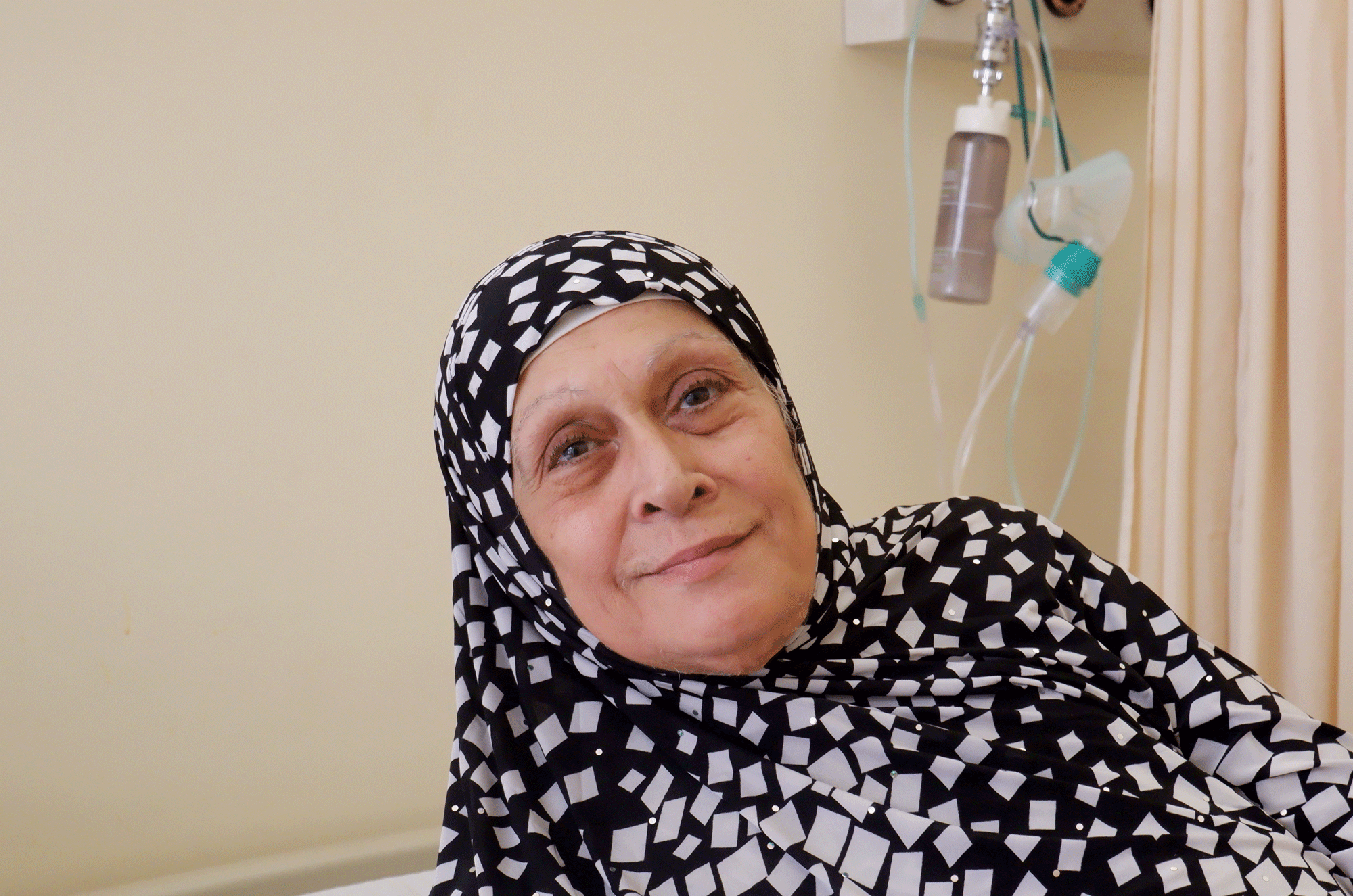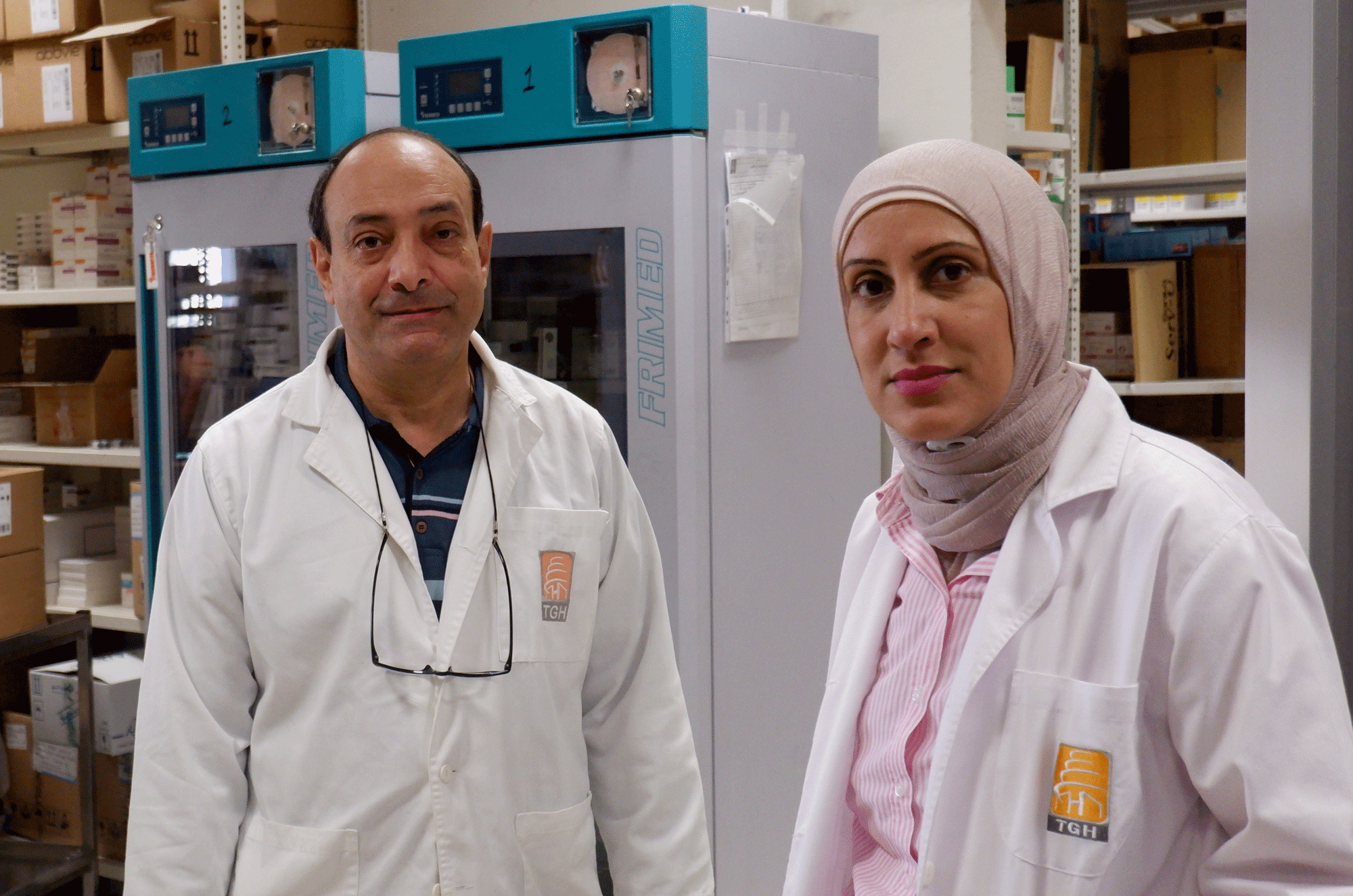Dec, 2022
Medical aid donations of essential medicines like the antibiotics recently donated by Direct Relief provide vital support to Lebanon's healthcare institutions during the nation's financial crisis.
No one wants to go to the hospital. But when injuries or health conditions become life-threatening, it’s the last resort. For many people in Lebanon, where the economy is in shambles and families can barely put food on the table, the cost often puts medicines and other healthcare needs out of reach. Infections easily cured at home with an appropriate course of medicines, for instance, go untreated and the conditions worsen. Too often, patients then end up in the hospital.
“Most patients arrive at the hospital in critical condition because they can’t afford medicine at home, but they also fear the cost of hospitalization,” says Omar Bitar, a pulmonologist at the Tripoli Governmental Hospital. “By the time they get to us, their condition has deteriorated to critical levels.”
Anera recently distributed IV antibiotics, donated by Direct Relief, to hospitals across Lebanon. The Lebanese healthcare system is in such a state of crisis that many hospitals, particularly those run by the government, would likely have collapsed if not for medical aid from organizations like Direct Relief and Anera.
“We received a shipment of the antibiotic [moxifloxacin],” says Rania Sultan, head of the pharmacy and sterilization department at Tripoli Hospital. “This is covering a vital need, as Lebanon is experiencing a shortage of medicine, particularly [moxifloxacin] and similar antibiotics that are administered intravenously.”


Moxifloxacin is critical in cases of advanced pneumonia, bronchitis, and other other serious conditions where traditional antibiotics fail or were not administered early enough. Lebanon’s hospital budgets have been decimated by the economic collapse. Pharmaceutical prices in particular are skyrocketing. Figures for buying one medicine can sometimes exceed 40 million Lebanese lira ($965). So donations of the kinds of medicines Direct Relief provides help hospitals to keep running and providing care to patients who also are struggling financially.


“Most patients arrive at the hospital in critical condition because they can’t afford medicine at home, but they also fear the cost of hospitalization.”
“I have chronic pulmonary inflammation and am hospitalized whenever my lungs fill up with fluids,” says Zainab, a 65-year-old patient at Tripoli Hospital.
“I’ve been getting IV antibiotics for five days during my hospital stay. Thank goodness I don’t have to pay for them, because they are very expensive. I used to consider myself a burden to my children. They’d leave their jobs to look for medicine for me and would pay exorbitant prices for it, even though they can barely support themselves and their own families. I now have effective medicine that I got for free. I feel much better as a result.”


"I used to consider myself a burden to my children. They’d leave their jobs to look for medicine for me and would pay exorbitant prices for it, even though they can barely support themselves and their own families. I now have effective medicine that I got for free."
“I had a cesarean section, which led to a bladder stone and wounds to my pancreas,” says Suzihan, another patient at Tripoli Hospital.
“I had some bad infections as a result. But I've made significant progress since coming to the hospital and getting IV antibiotics. When I was home, I couldn’t buy the antibiotics I needed because it cost about four million Lebanese lira per dose [more than $2,000] and I needed a dose every two days! Now I am getting the treatment free at the hospital. We need to save every lira for our newest little member of the family.”
As Lebanon’s hospitals and clinics experience an acute shortage of medicines, and as they do their best to treat patients with what is available, it is vital that international organizations like Direct Relief and Anera continue providing them with the support and supplies they need to persevere.






